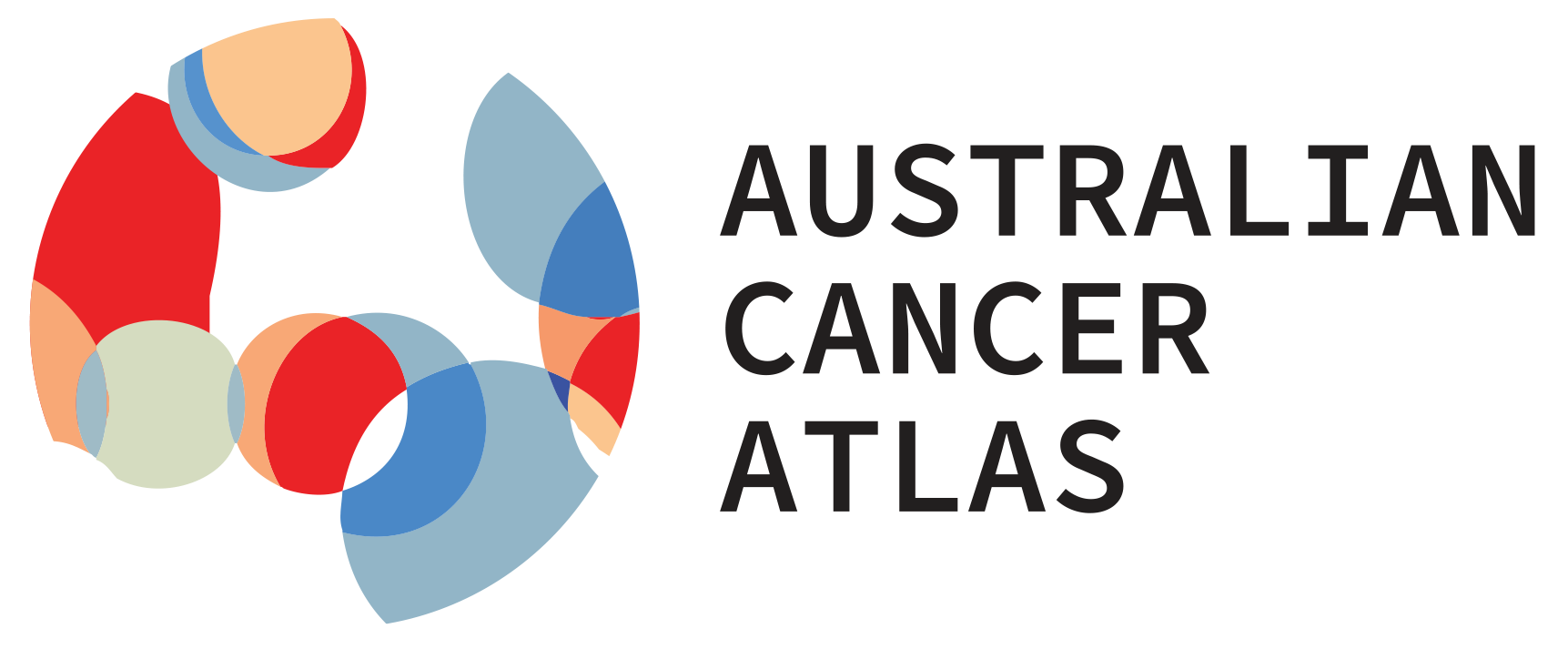
2 About
The Australian Cancer Atlas is an online, interactive platform showing how measures relating to cancer diagnosis, survival, recognised risk factors, screening, and selected hospital treatments vary by small geographical areas across Australia.
There is a long history of studies showing that where you live matters, particularly for health. In 2011, we released the Atlas of Cancer in Queensland, highlighting how the patterns of cancer diagnosis and survival varied depending on where people lived. This Atlas had an important influence on key policy initiatives designed to reduce geographical variation in Queensland. While there’s information on cancer burden available at national level, prior to the Queensland Atlas there was no comprehensive picture of how this burden of cancer varied depending on where you lived across Australia.
The Australian Cancer Atlas aims to address that gap. It builds on our previous experience to provide a national perspective of how the burden of cancer varies by geographical area. It does this by expanding the spatial models used to generate the statistics, the methods of visualising the results, and disseminating the atlas through a freely accessible, interactive, online system.
The Australian Cancer Atlas (1.0) was first launched in September 2018. This was a collaborative study funded by FrontierSI, Cancer Council Queensland, Australian Institute of Health and Welfare and Queensland University of Technology. The Atlas had additional support from the Centre for Research Excellence in Prostate Cancer Survivorship. It was endorsed by the Australasian Association of Cancer Registries and Cancer Council Australia, and investigators accessed expertise from the Australian Research Council Centre of Excellence for Mathematical and Statistical Frontiers. A data update to the Atlas was released in February 2021, which included data up to 2016, and one additional cancer type –classic myeloproliferative neoplasms (MPN).
In March 2021, work started on the Australian Cancer Atlas 2.0. This represented a large expansion on the original Atlas, including more cancer types, a greater range of indicators, and, for the first time, information on how the geographical patterns have changed over time. The Australian Cancer Atlas 2.0 is a collaboration between Cancer Council Queensland and Queensland University of Technology, with additional funding provided by the Australian Research Council, MPN Alliance Australia and Prostate Cancer Foundation of Australia.
2.1 Project team
2.1.1 Researchers and technical team
Principal investigators
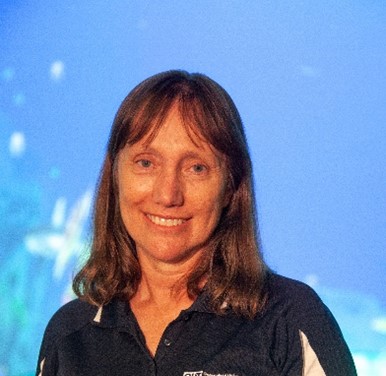 |
 |
|---|---|
| Distinguished Professor Kerrie Mengersen | Professor Peter Baade |
Project investigators
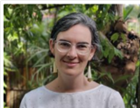 |
 |
 |
 |
|---|---|---|---|
| Dr Jessica Cameron | A/Prof Susanna Cramb | Professor Joanne Aitken | Dr Upeksha Chandrasiri |
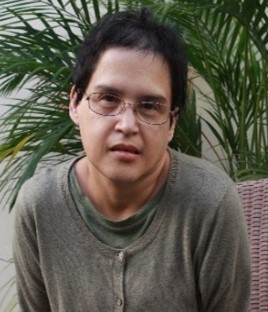 |
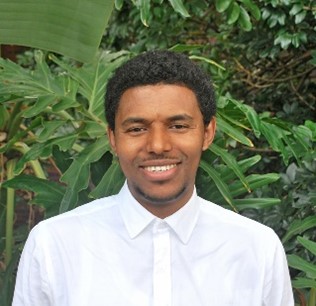 |
||
| Dr Paramita Dasgupta | Dr Habtamu Bizuayehu |
Postgraduate students
 |
 |
 |
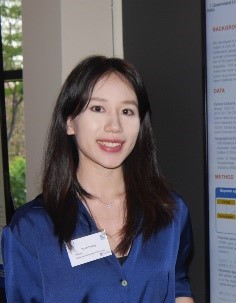 |
|---|---|---|---|
| James Hogg (PhD, QUT) | Conor Hassan (PhD, QUT) | Ankur Kohar (PhD, USyd) | Yuxin Huang (MPhil, QUT) |
 |
|||
| Vishal Singh (PhD, QUT) |
Project consultants
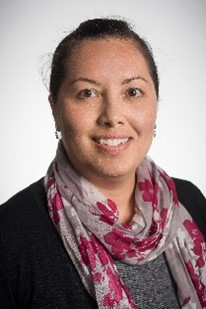 |
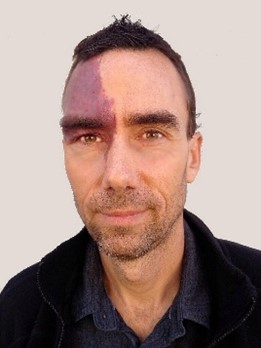 |
 |
|---|---|---|
| Helen Thompson (QUT) | Darren Wraith (QUT) | David Smith (Daffodil Centre, CCNSW) |
Visualisation and Interactive Solutions for Engagement and Research (VISER) group
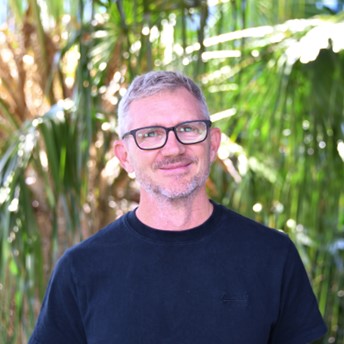 |
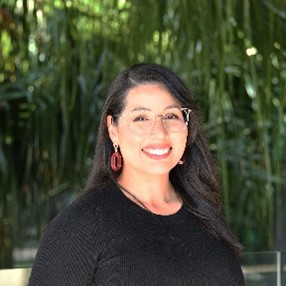 |
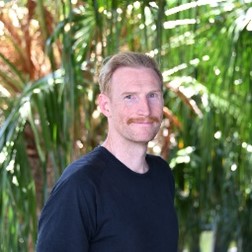 |
 |
|---|---|---|---|
| Thom Saunders | Sarah Azad | Ben Kleverlaan | Michael Smallcombe |
 |
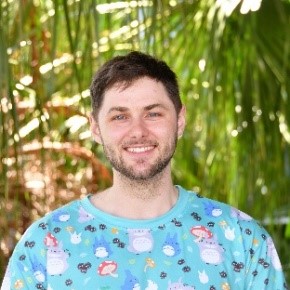 |
||
| Shaun Kickbusch | Pascal Cunin |
Visual story telling
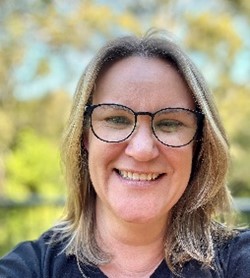 |
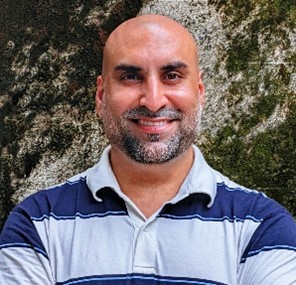 |
 |
|---|---|---|
| Kate Thompson (QUT) | Muhammad Haroon (CCQ) | Jacinta Lisec (QUT) |
2.1.2 Project Advisory Group
As part of the Australian Cancer Atlas project, a Project Advisory Group was set up to raise awareness of different stakeholder needs and interests and have opportunity to review and comment on project output. Members of the Project Advisory Group were invited based on their national expertise in multidisciplinary areas such as cancer epidemiology, visualisation, Indigenous health, spatial modelling, health inequalities and cancer registries.
Prof. David Roder Chair (Cancer Epidemiology and Population Health, School of Health Sciences, University of South Australia; Senior Principal Research Fellow at the SA Health and Medical Research Institute)
Prof. Jeff Dunn (Chief of Mission & Head of Research, Prostate Cancer Foundation of Australia; Professor Social & Behavioural Science & Chair Cancer Survivorship, UniSQ; President, Union for International Cancer Control)
Dr Sarah Goodwin (Lecturer, Data Visualisation and Immersive Analytics Research Group, Monash University, VIC)
Prof. Louise Ryan (Distinguished Professor of Statistics, University of Technology Sydney)
Danica Cossio (Chair, Australasian Association of Cancer Registries)
Justin Harvey (Head of Cancer and Screening Unit, Australian Institute of Health and Welfare)
Richard Trevithick (Western Australia Cancer Registry)
Gregory Richards (General Manager Policy and Research, Queensland Aboriginal and Islander Health Council.
Dr Paul Jelfs (formerly General Manager, Social statistics division, Australian Bureau of Statistics)
Dr Anders Holmberg (Chief methodologist and general manager, methodology division, Australian Bureau of Statistics)
Dr Storm Holwill (Public Health Registrar, Queensland Aboriginal and Islander Health Council)
2.1.3 Participating organisations
The Australian Cancer Atlas 2.0 is a collaborative project being developed by statisticians, cancer researchers, visualisation experts and IT specialists from Cancer Council Queensland (CCQ) and Queensland University of Technology (QUT).
The Atlas 2.0 has been endorsed by the Australasian Association of Cancer Registries and Cancer Council Australia, and investigators accessed expertise from QUT Centre for Data Science.
Cancer Council Queensland (CCQ)
Cancer Council Queensland (CCQ) is Queensland’s leading non-government community organisation in cancer control and is committed to providing all Queenslanders with the best possible prospects of preventing, detecting, effectively treating, and surviving a cancer diagnosis. Cancer Council Queensland receives no government funding and depends on the support of its thousands of donors and volunteers to achieve the goal of a cancer free future.
Queensland University of Technology (QUT)
Queensland University of Technology (QUT) is one of Australia’s fastest growing research universities with a global outlook and a real-world focus. The Australian Cancer Atlas 2.0 project is supported by the QUT Centre for Data Science, (CDS). The CDS is home to major national and global research collaborations that deliver solutions for the challenges of today and the future.
Australian state and territory cancer registries
The Australian Cancer Atlas is only possible due to the valuable work of staff of the population-based cancer registries throughout Australia, namely the Queensland Cancer Register, New South Wales Cancer Registry, Victorian Cancer Registry, South Australian Cancer Registry, Tasmanian Cancer Registry, Western Australian Cancer Registry, Australian Capital Territory Cancer Registry and Northern Territory Cancer Registry. Their role was critical in collecting the data on cancers diagnosed in Australia, and then providing these data for analyses in the Australian Cancer Database (Australian Cancer Database) managed by the Australian Institute of Health and Welfare.
Australian Institute of Health and Welfare (AIHW)
The Australian Institute of Health and Welfare (AIHW) is a major national agency producing independent, relevant, and reliable health and welfare information and statistics to support better decisions, leading to better health and wellbeing for Australians. It informs policy development and public discussion by producing reports, datasets, and other product thus adding to the evidence base that is critical to good policy making and effective service delivery. The Population Health Group (Cancer Data & Monitoring Unit) compiles cancer-related national data sets and reports a variety of population-level statistics on cancer and the national bowel, breast, and cervical cancer screening programs (Screening Analysis & Monitoring Unit).
Prostate Cancer Foundation of Australia
The Prostate Cancer Foundation of Australia (PCFA) is a leading community-based organisation for prostate cancer research, awareness, and support. As the nation’s predominant charity fund for Australian-based prostate cancer research, they exist to protect the health of existing and future generations of men in Australia and to improve quality of life for Australian men and families impacted by prostate cancer. Their vision is a future where no man dies of prostate cancer and Australian men, and their families get the support they need.
2.1.4 Previous contributors
We appreciate all the people who contributed to the development of the first Australian Cancer Atlas. Further information can be found in the corresponding e-book. (Duncan et al., 2019b)
2.2 Awards / Publications
2.2.1 Awards
The Australian Cancer Atlas 1.0 was awarded the JK Barrie Award for Overall Excellence at a national award ceremony in May 2020, by the Surveying & Spatial Sciences Institute (SSSI). The insititute is the national peak body catering for the spatial information industry. The JK Barrie Award represents “the highest pinnacle of spatial achievement that the judging panel can confer on recipients.” The Atlas was also announced as the national winner of the ‘Award for Spatial Enablement’.
2.2.2 Publications
Cameron JK, Aitken J, Reid A, Mengersen K, Cramb S, Preston P, Armstrong B, Baade PD. Geographic distribution of malignant mesothelioma incidence and survival in Australia. Lung cancer (Amsterdam, Netherlands). 2022; 167: 17-24. (Available here)
Cameron JK, Fritschi L, Ross DM, Anderson LA, Baade PD. Spatial disparities in the reported incidence and survival of myeloproliferative neoplasms in Australia. Pathology. 2022; 54 (3): 328-335. (Available here)
Cameron JK, Chandrasiri U, Millar J, Aitken JF, Cramb S, Dunn J, Frydenberg M, Rashid P, Mengersen K, Chambers SK, Baade PD, Smith DP. Disease mapping: Geographic differences in population rates of interventional treatment for prostate cancer in Australia. PLoS One. 2023 Nov 13;18(11): e0293954 (Available here)
Cramb SM, Duncan EW. A Comparison of Bayesian Spatial Models for Cancer Incidence at a Small Area Level: Theory and Performance, in Case Studies in Applied Bayesian Data Science. Lecture Notes in Mathematics, Mengersen KL, Pudlo P, and Robert CP, (editors). 2020, Springer: Cham, Switzerland. p. 245-274. (Available here)
Cramb SM, Duncan EW, Aitken JF, Soyer HP, Mengersen KL, Baade PD. Geographical patterns in melanoma incidence across Australia: can thickness differentials reveal the key drivers? Annals of Cancer Epidemiology. 2020; 4:11. (Available here)
Dasgupta P, Cameron JK, Cramb SM, Trevithick, RW, Aitken, JA, Mengersen KL, Baade PD. Geographical and spatial disparities in the incidence and survival of rare cancers in Australia. International Journal of Cancer. 2023; 152 (8): 1601-1612. (Available here)
Dasgupta P, Cameron JK, Goodwin B, Cramb, SM, Mengersen KL, Aitken, JA, Baade PD. Geographical and spatial variations in bowel cancer screening participation, Australia, 2015- 2020, PLos One. 2023; 18(7): e0288992. (Available here)
Duncan EW, Cramb SM, Aitken JF, Mengersen KL, Baade PD. Development of the Australian Cancer Atlas: spatial modelling, visualisation, and reporting of estimates. International Journal of Health Geographics. 2019; 18(1): 1-2 (Available here)
Hogg J, Cameron J, Cramb S, Baade P, Mengersen K. Mapping the prevalence of cancer risk factors at the small area level in Australia. International Journal of Health Geographics. 2023;22(1):37. (Available here)
Kohar A, Baade PD, Cramb SM, Pickles K, Smith DP. Changes in prostate specific antigen (PSA) “screening” patterns by geographic region and socio-economic status in Australia: Analysis of Medicare data in 50-69 year old men. Cancer Epidemiology. 2023; 83:102338. (Available here)
Kohar A, Cramb SM, Pickles K, Smith DP, Baade PD. Spatial patterns of prostate-specific antigen testing in asymptomatic men across Australia: a population-based cohort study, 2017-18, Australia. Public Health. 2023; 217: 173-180. (Available here)
2.2.3 Conference presentations
Baade PD. Australian Cancer Atlas: Measuring how the impact of cancer varies by location. Chinese Conference of Holistic Integrative Oncology (CCHOI). Tianjin, China. November, 2023.
Baade PD, Cameron JK, Cramb SC. Communicating insights from disease maps: innovative visualisations and analyses from the Australian Cancer Atlas. The SPARSE (Smoking Prevalence for Australia with Reliable Small-area Estimation) symposium, November 2022.
Cameron JK. The Australian Cancer Atlas. The Tasmanian Cancer Registry, Hobart, February 2023.
Cameron JK. Spatiotemporal modelling using cancer registry data in Australia. The International Association of Cancer Registries (IACR) conference, November 2022.
Cameron JK. Geographic distribution of malignant mesothelioma incidence and survival in Australia. The International Association of Cancer Registries (IACR) conference, November 2022.
Cramb SM. Adventures in Bayesian Disease Mapping. UQ Statistical, Modelling and Operations Research seminar. Brisbane, Australia, November 2022.
Cramb SM. Adventures in Bayesian Disease Mapping. UQ Herston Statistical Modelling Group Seminar, 14 Feb 2023, Brisbane.
Cramb SM, Hogg J. Mapping Cancer: The Australian Cancer Atlas. Australasian Epidemiological Association Epidemiology in Government Special Interest Group, 2 Dec 2022, Online [invited speaker]
Cramb SM, Cameron JK, Hogg J, Mengersen K, Baade PD. Australian Cancer Atlas 2.0: Advanced models and visualisations. Australian Statistical Conference 2023, 11-14 December 2023, Wollongong.
Hogg J. Searching for stability in Bayesian small area estimation of proportions. QANZIAM Conference at the Queensland University Technology, Australia, June 2022.
Hogg J. Introducing a Bayesian two-stage logistic-normal model for small area estimation of proportions. World Meeting in Montreal, Canada. Bayesian Young Statisticians Meeting (BAYSM), June 2022.
Hogg J. Introducing a Bayesian two-stage logistic-normal model for small area estimation of proportions. World Meeting in Montreal, Canada. International Society of Bayesian Analysis (ISBA), June to July 2022.
Hogg J. Risk factors and the Australian Cancer Atlas: the trepidation of instability and sparsity in small area estimation. The 2nd ECR Cancer Epidemiology Conference, November 2022.
Hogg J. Risk factors and the Australian Cancer Atlas: the trepidation of instability and sparsity in small area estimation. The SPARSE (Smoking Prevalence for Australia with Reliable Small-area Estimation) symposium, November 2022.
Kohar A. The Geography of Prostate Specific Antigen Testing in Australia: Spatial Analyses of Medicare Claims Data. CRN HDR Student Symposium, November 2022.
Kohar A. Spatial Analysis of Medicare Reimbursed Prostate-Specific Antigen Tests by Small Areas in Australia. The 2nd ECR Cancer Epidemiology Conference, November 2022.
2.2.4 Technical reports
Cramb SM, Duncan EW, White NM, Baade PD, Mengersen KL, 2016. Spatial Modelling Methods. Cancer Council Queensland and Queensland University of Technology (QUT). (Available here)
Cramb SM, Duncan EW, Baade PD, Mengersen KL, 2018. Investigation of Bayesian spatial models. Cancer Council Queensland and Queensland University of Technology (QUT). (Available here)
Duncan EW, Cramb SM, Baade PD, Mengersen KL, Saunders T, Aitken JF. Developing a Cancer Atlas using Bayesian Methods: A Practical Guide for Application and Interpretation. Revised 23 August 2020 (online v1.0.1) (Available here)
Roberts J., Cramb SM, Baade PD, Mengersen KL, 2016. Communicating Statistical Outputs Through Health Maps. Cancer Council Queensland and Queensland University of Technology (QUT). (Available here)
Roberts J., Cramb SM, Baade PD, Mengersen KL, 2016. Grey Literature Review: Internet Published Cancer Maps. Cancer Council Queensland and Queensland University of Technology (QUT). (Available here)
2.3 Ethics and Data custodian approvals
2.3.1 Cancer registry data
Approval to obtain the required information from each of the cancer registries was first obtained from several Human Research Ethics Committees and the respective data custodians in each state and territory.
Once all the approvals were obtained, the Australian Institute of Health and Welfare provided the required data in de-identified format from the Australian Cancer Database. De-identified means that the data included no identifying information about individuals, such as names, street address or date of birth.
Table 2.1 Human Research Ethics Committee and data custodian approvals for cancer registry data
| Cancer registry | Human Research Ethics Committee Approval |
|---|---|
| Australian Capital Territory Cancer Registry |
ACT Health Human Research Ethics Committee (EC00100) Ref: ETH.16.235 |
| New South Wales Cancer Registry |
NSW Population & Health Services Research Ethics Committee (EC00410) Ref: 2019/ETH01656 |
| Northern Territory Cancer Registry |
Human Research Ethics Committee for the Northern Territory Department of Health and Menzies School of Health Research (EC00153) Ref: HREC-2016-2720 |
| Queensland Cancer Register |
QUT University Human Research Ethics Committee (EC00171) Approval number: 6398 Griffith University Human Research Ethics Committee (EC00162) Ref:2018/280 |
| South Australian Cancer Registry |
SA Department for Health and Wellbeing Human Research Ethics Committee (EC00304) Ref: 2020/SSA00658 (Previous Ref: SSA/17/SAH/28) |
| Tasmanian Cancer Registry | NSW ethics approval noted |
| Victorian Cancer Registry | NSW ethics approval noted |
| Western Australian Cancer Registry | NSW ethics approval noted |
Additional approvals for stage at diagnosis
The stage at diagnosis data was collected as part of the StaR (Stage, Treatment and Recurrence) project. This was a collaborative program conducted by Cancer Australia which engaged various stake holders to collate, access, analyse and report data on stage, treatment, and recurrence of five most common cancers in Australia, for cancer diagnoses in the year 2011.
Approval to access these stage data for Atlas 2.0 was obtained from Australia’s state and territory data custodians and the following Human Research Ethics Committees:
NSW Population & Health Services Research Ethics Committee (EC00410) Reference: 2019/ETH01656.
Australian Capital Territory Health Human Research Ethics Committee (EC00100) Reference: ETHLR.16.235.
Human Research Ethics Committee for the Northern Territory Department of Health and Menzies School of Health Research (EC00153) Reference: 2016-2720.
Griffith University Human Research Ethics Committee (EC00162) Reference:2018/280.
2.3.2 National Health Survey
Approval to access and analyse data for cancer risk factors from the National Health Survey for Atlas 2.0 was obtained from the following Human Research Ethics Committees:
The Queensland University of Technology Human Research Ethics Committee (Project ID: 4609) for the project entitled “Statistical methods for small area estimation of cancer risk factors and their associations with cancer incidence”.
Ethics approval for including data from National Health Survey: Griffith University Human Research Ethics Committee (EC00162) Reference:2018/052.
Project proposal for Australia Bureau of Statistics DataLab for data analyses: Project ID: 2021-033 QUT.
2.3.3 Medicare Benefits Schedule
Approval to access data on prostate-specific antigen testing or prostate cancer interventional hospital treatments from the Medicare Benefits Schedule (MBS) and the National Hospital Morbidity Database for Atlas 2.0 was obtained from Griffith University Human Research Ethics Committee (EC00162) Reference: 2017/777. Data custodian approval for the prostate-specific antigen testing data was provided by the Commonwealth Department of Health after approval from the Chief Data Steward under the Health Insurance Act 1973. Approval to release the de-identified hospital treatment data from the National Hospital Morbidity Database was provided by the Australian Institute of Health and Welfare, who coordinated the separate jurisdictional approvals from data custodians in each state and territory.
2.4 Data storage
To protect the security and privacy of the data, all data sourced from the Australian Cancer Database (Australian Cancer Database) were electronically stored in the Secure Unified Research Environment, (SURE, SURE) facility, managed by the SAX Institute. Data sourced from Australian Institute of Health and Welfare and Medicare Benefits Schedule were also stored on the SURE facility.
The SURE facility uses a range of information security measures relating to the access, storage and transmission of data including access only via username, passwords and onetime access codes, central storage of data on computer servers housed in a secure data server, and restrictions on file transfers through a moderated gateway.
All the analyses were conducted using statistical software installed within the SURE facility and accessed using secure remote connection facilities.
To protect the security and privacy of the data, the National Health Survey data could only be accessed in the secure cloud based DataLab (DataLab) virtual computing environment, managed by the Australian Bureau of Statistics. All the analyses were conducted using statistical software available in DataLab and accessed using secure remote connection facilities.
2.5 Copyright and disclaimers
2.5.1 Copyright notice
The Queensland University of Technology (“QUT”) owns the copyright in all material presented on this website. The materials on this website have been developed by researchers from QUT and Cancer Council Queensland (“CCQ”) using data contributed from the Data Custodians. For enquiries regarding the use of materials from this website, contact atlas@cancerqld.org.au.
LOGOS
Logos and trademarks used on this website may not be used without prior written permission from the owners of those logos and trademarks. The “Australian Cancer Atlas” logo and any associated trademarks are owned by Cancer Council Queensland.
2.5.2 Disclaimer
The material published on this website is intended for general information only and for the purpose of dissemination of information for the benefit of the public and is not legal advice, health advice or other professional advice. Any opinions expressed in this material do not necessarily represent the views of QUT nor CCQ (the “Project Parties”).
While care and consideration has been taken in the creation of the information on this website, the Project Parties do not warrant, represent or guarantee that the information published on this website is in all respects correct, accurate, complete and current or that it is suitable for any particular purpose. To the extent permitted by law, the Project Parties exclude, and you release the Project Parties of any liability, including any liability for negligence, for any loss or damage arising from reliance on material on this website, including which is not correct, accurate, complete or up to date or suitable for any particular purpose. If you rely on the information on this website, you are responsible for ensuring by independent verification its accuracy, currency and/or completeness.
If any warranty or guarantee cannot by law be excluded, then, to the extent permitted by law, the Project Parties’ liability for such warranty or guarantee is limited, at the Queensland University of Technology’s option, to supplying the corrected information or materials again via an update to the Australian Cancer Atlas. The Project Parties are not responsible for the content of any third-party website to which links are provided from this website. Any links to websites are provided for your information and convenience only. The Project Parties do not endorse or control said information.
Please note that some material on this site has been developed from data provided by third parties. The Project Parties cannot verify the accuracy of data that has been provided by third parties.